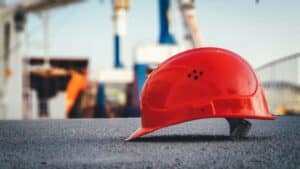HVAC Safety: Preserve and Protect Your Indoor Comfort
Don’t Leave Your Well Being or Your Air Conditioning to Chance!

Outside the specter of an unattended space heater or poorly maintained furnace, few people give much thought to safety issues around heating, ventilation, and air conditioning. In fact, when it comes to HVAC operation, safety is paramount. Proper installation, maintenance, and appropriate equipment use are essential parts of indoor comfort that bring peace of mind. Keep these points in mind when reviewing how safe your system is for your Pasadena home or commercial property.
Was It Installed Correctly?
There are very strict California codes and regulations in place to ensure safety and performance when it comes to heating, ventilation, and air conditioning. Earthquakes, power surges and other problems dictate specific ways in which this equipment needs to be installed. Unfortunately, a less experienced installer or handyman can ignore basic code requirements and sizing issues. Typically these kinds of HVAC workers work outside the law, though they charge much less. While it might seem like a deal, the fact is that Improper installation can lead to a range of safety hazards, including electrical fires, gas leaks, and carbon monoxide poisoning. A faulty installation also can end up costing you far more in terms of system breakdowns that otherwise wouldn’t have happened. You wouldn’t hire just anybody to work on your luxury car. Your HVAC represents a significant and similar investment. Make sure you use only qualified professionals who are licensed and experienced in HVAC installation to work on it.
Are You Doing Regular Maintenance?
Routine maintenance is a must for keeping HVAC systems operating safely and efficiently. Neglected equipment can result in refrigerant leaks, clogged ventilation or worse, all of which can compromise safety and performance. Regular inspections and tune-ups by certified technicians can identify and address potential safety hazards before they escalate into serious problems. Whether it’s an obstruction in your ductwork or a faulty electrical wire, this kind of professional can easily spot these problems, so you can fix it and forget it.
Always Have Adequate Ventilation.
Ventilation is critical for maintaining indoor air quality and preventing the buildup of harmful pollutants like carbon monoxide and volatile organic compounds (VOCs). Verify your HVAC system is properly sized and configured to provide adequate ventilation for the size and occupancy of your Los Angeles home or commercial building. Don’t forget to clean and inspect ventilation ducts regularly to prevent blockages, too.
Double Check Carbon Monoxide Levels.
Carbon monoxide (CO) is a colorless, odorless gas that can be produced by malfunctioning HVAC equipment, gas appliances, or other combustion sources. Exposure to high levels of CO can be life-threatening, causing symptoms such as headaches, dizziness, nausea, and even death. Install and maintain working carbon monoxide detectors in your home or building. Regularly check and replace the batteries when necessary. We also recommend scheduling an annual inspection for all gas-fired HVAC equipment to detect and address any leaks or malfunctions.
Practice Electrical Safety.
HVAC systems and their electrical components can pose safety risks if mishandled. Unless you’re a licensed electrician, leave the electrical wiring, connections, and other components to the professionals. They will also comply with local electrical codes. Avoid overloading circuits, use surge protectors, and never attempt to perform electrical repairs or modifications without the right training or safety equipment.
Avoid Keeping Fire Hazards Near Your System.
HVAC can present fire hazards if not maintained or operated in the right ways. Keep flammable materials like paper, cloth, and cleaning chemicals well away from heating equipment and ventilation ducts. Regularly clean and inspect heating equipment, chimneys, and flue pipes to remove any buildup of combustible materials. Again, double check to make sure you have working smoke detectors at all times throughout your home or commercial building.
Stay Informed and Educated.
Familiarize yourself with common safety guidelines, regulations, and best practices for HVAC systems by consulting reputable sources at government agencies, industry organizations, and professional HVAC companies. Educate yourself and all building occupants about the proper operation and maintenance of HVAC equipment, including emergency procedures and safety precautions.
Don’t become a statistic or a worst-case insurance claim. Prioritize common sense and overall heating, ventilation, and air conditioning safety. By definition, indoor comfort is all about relaxation and well-being, not risk.
Is it time to schedule your annual HVAC inspection and system maintenance appointment? Call the experts at Air-Tro. We’ve been keeping Los Angeles and Pasadena, California, comfortable since 1969. (626)357-3535.
